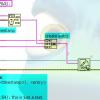Send cluster / struct from dll with a couple of int's AND a string of text to Labview
-
Similar Content
-
- 3 replies
- 1,924 views
-
- 8 replies
- 4,063 views
-
- 4 replies
- 3,919 views
-
Can someone help me with an example for an existing wrapper DLL which uses function pointer with callback function 1 2
By Neon_Light,
- 26 replies
- 9,507 views
-
- 11 replies
- 13,384 views
-



Recommended Posts
Join the conversation
You can post now and register later. If you have an account, sign in now to post with your account.